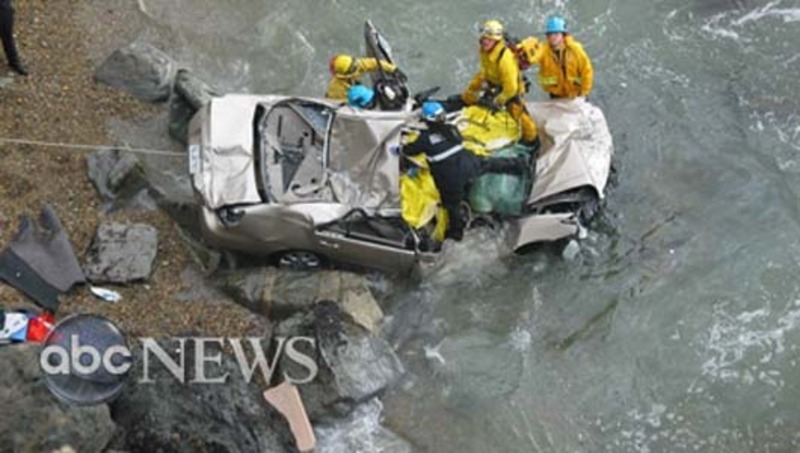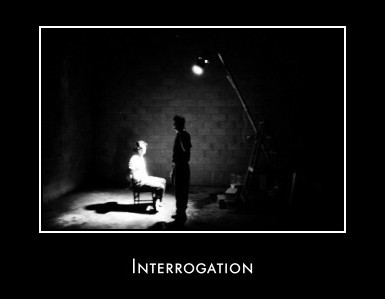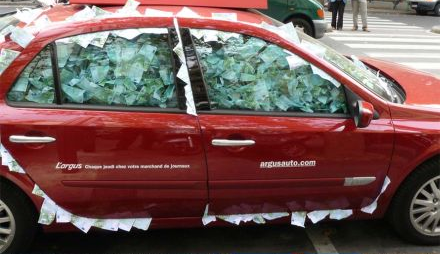Documents from TOYOTA indicate that TOYOTA was fully aware of the SOFTWARE and HARDWARE problems that caused SUDDEN UNINTENDED ACCELERATION in 2002, yet refused to correct it.
[See Toyota allowed people to die]
TOYOTA continued to produce vehicles that INJURED or KILLED innocent victims!
“The settlement is for people who suffered an economic loss, but we lost human
beings — husbands, fathers, daughters,” said Colleen Krause whose husband,
Stephen, was killed in 2009 when a speeding Toyota Highlander crossed the center
line on Route 202 in New Hampshire and hit his rented Chevrolet head-on. “It’s
good news, but it doesn’t bring back my husband.”
The driver of the
Highlander, Harvard biostatistics professor Stephen Lagakos, also died in the
crash, along with his wife and mother, who were passengers in his vehicle.
Betsy Benjaminson heroically stepped forward, exposing TOYOTA's LIES and COVER-UP:
Behind the
scenes, Toyota played hardball with critics. A public relations manager named
Masami Doi had spelled out the approach in a December email. "There are at most
around 10 people who are the sources of negative tone communications. If they
can be suppressed, I think we will be able to manage it somehow. Like you said,
let's go with an intention of destroying each individual person's ability to
oppose us, one by one…."
– David Hechler,
Is Toyota Telling The
Truth About Sudden Acceleration (emphasis
supplied)
According to this story, some
of the NASA scientists who worked on the February 2011 report that DOT Secretary
Ray LaHood proclaimed an exoneration of Toyota electronics were so disturbed by
the way they were forced to “investigate,” they refused to sign the final
product.
Ya gotta love this horse manure being spread by the media:
The Japanese company has maintained the electronic throttle control system was
not at fault, blaming ill-fitting floor mats and sticky gas pedals.
Toyota in Talks on Final Settlements Over Car Recalls
Toyota is moving to resolve the last major legal issues related to the unintended acceleration of its vehicles, which has already cost it billions of dollars and prompted
the recall of millions of cars in 2009 and 2010.
In one case, Toyota is nearing a deal with the Justice Department to settle a criminal investigation over the way the automaker disclosed complaints stemming from the sudden acceleration of its vehicles, according to two people with knowledge of the talks.
The discussions, with the criminal division of the United States attorney’s office for the Southern District of New York, are the culmination of a roughly four-year investigation.
The Securities and Exchange Commission is also involved, focusing on whether Toyota fully disclosed the potential financial impact of the vehicle problems.
The news of the possible deal was first reported by
The Wall Street Journal.
Toyota officials on Sunday said that no agreement had been reached, but that a settlement was one of the final hurdles the automaker must clear as it strove to put its prolonged legal troubles in the past.
“Toyota continues to cooperate with the U.S. attorney’s office in this matter,” said Carly Schaffner, a spokeswoman. “In the nearly four years since this inquiry began, we have made fundamental changes to become a more responsive and customer-focused organization, and we are committed to continued improvements.”
Separately, Toyota is in talks to settle hundreds of state and federal lawsuits filed against it claiming wrongful death and personal injury. The automaker
announced in December it was entering negotiations to settle the lawsuits, two months after it
lost a landmark case in an Oklahoma court.
The jury in that case found that a
Toyota Camry’s electronic throttle system was defective in a 2005 crash that killed one woman and injured another.
The defeat came after Toyota won its first three sudden-acceleration trials, and analysts said that the losing verdict was the catalyst for Toyota to pursue a settlement of its remaining cases.
A lawyer involved in the settlement talks, who requested anonymity because he was not authorized to speak publicly, said that of the 400 or so cases remaining, “a significant number have been settled,” with the remainder to be negotiated in February and March. The ones not settled will go to mediation in April and May, the lawyer said.
Toyota’s efforts to resolve its legal issues come as the automaker says it
expects to reach record profits this year in an increasingly competitive automotive landscape, said Alec Gutierrez, senior analyst at Kelley Blue Book.
“While Toyota’s quality was once unquestioned, they now face renewed competition from the domestics, Koreans and their traditional Japanese counterparts that now produce vehicles of similar or arguably superior quality for the money,” Mr. Gutierrez said.
Industry watchers said the protracted timeline of Toyota’s sudden-acceleration troubles and legal issues continued to create negative publicity.
A settlement with the Justice Department could exacerbate Toyota’s struggles to settle its remaining cases and would be “another reminder of the earlier difficulties that tarnished its reputation,” said Carl W. Tobias, a professor who specializes in product liability at the University of Richmond School of Law.
The publicity surrounding a settlement “will increase the pressure on Toyota to settle the wrongful death and personal injury cases for more than Toyota might have paid, had it settled those claims earlier,” he said.
Last week, the automaker said it would
stop selling certain models of its cars in response to claims that nearly 30,000 new Toyotas were equipped with faulty or malfunctioning heated seats.
“It is striking how every time that Toyota seems to be emerging from its sudden-acceleration problems stretching back more than five years, some new difficulty appears,” Mr. Tobias said.
Auto Maker, U.S. Prosecutor in Talks to Settle Investigation Involving Recall Disclosures
They are also looking into possible mail and wire fraud violations connected to those allegedly false disclosures, these people said. It is a federal crime to make false statements to a government agency.
A settlement that tops $1 billion would be one of the largest government fines ever extracted from an auto maker.
A Justice Department spokesman declined to discuss the specifics of any pending settlement.
"This is a landmark case because the auto industry has bobbed and weaved and done everything possible to avoid criminal sanctions forever," said Joan Claybrook, who led NHTSA from 1977 to 1981.
In February 2010, NHTSA said the agency had confirmed that five people in two incidents had died as a result of accidents involving claims of unwanted acceleration.
In the ensuing three years, Toyota was fined four times by NHTSA for a total of $66.2 million for failing to report safety defects to the government in a timely manner. Three of those fines were related to issues concerning unwanted acceleration.
Toyota said in November 2013 that it had received two subpoenas each from the Securities and Exchange Commission and Manhattan federal prosecutors in February and June 2010 related to "unintended acceleration and certain financial records," according to regulatory filings. Toyota also disclosed investigators interviewed Toyota and non-Toyota witnesses and said it was cooperating with officials.
The status of the SEC investigation is unclear. A spokesman for the SEC declined to comment. A spokesman for NHTSA referred questions to the Justice Department and declined to comment.
Toyota stepped up efforts to resolve outstanding claims related to the issue after it lost a wrongful-death civil case in Oklahoma last October. That verdict was seen by legal observers on both sides of the battle as complicating Toyota's legal prospects in future cases.
The auto maker moved overnight to settle that suit for an undisclosed amount after the jury ruled in favor of the plaintiffs, but before they could award punitive damages.
After the Oklahoma trial, Toyota entered into talks to settle the outstanding personal injury and wrongful death suits stemming from unwanted acceleration issues, according to attorneys involved in the litigation. Those talks are continuing, these people say.
Prosecutors' settlement with Toyota is expected to include a criminal deferred prosecution agreement with the car maker, according to several people familiar with the negotiations.
The precise terms of the agreement that is being considered with Toyota are unclear, but such agreements generally place a company facing prosecution under probation for a set number of years, during which time the company has to fulfill certain compliance obligations to avoid criminal charges.
Prosecutors have increasingly turned to such agreements in recent years as a means of forcing companies to accept responsibility while avoiding the potentially crippling consequences of federal criminal convictions.
In taking on Toyota, prosecutors are going after an industry that watchdog groups have long complained is given too free a ride from regulators and from legal scrutiny for safety issues.
Toyota has made structural changes to the company and says it has installed new quality control measures as part of its response to the crisis. It brought outsiders onto its board for the first time including the first ever American.
Toyota close to $1 billion deal to settle U.S. probe: WSJ


























.jpg)























